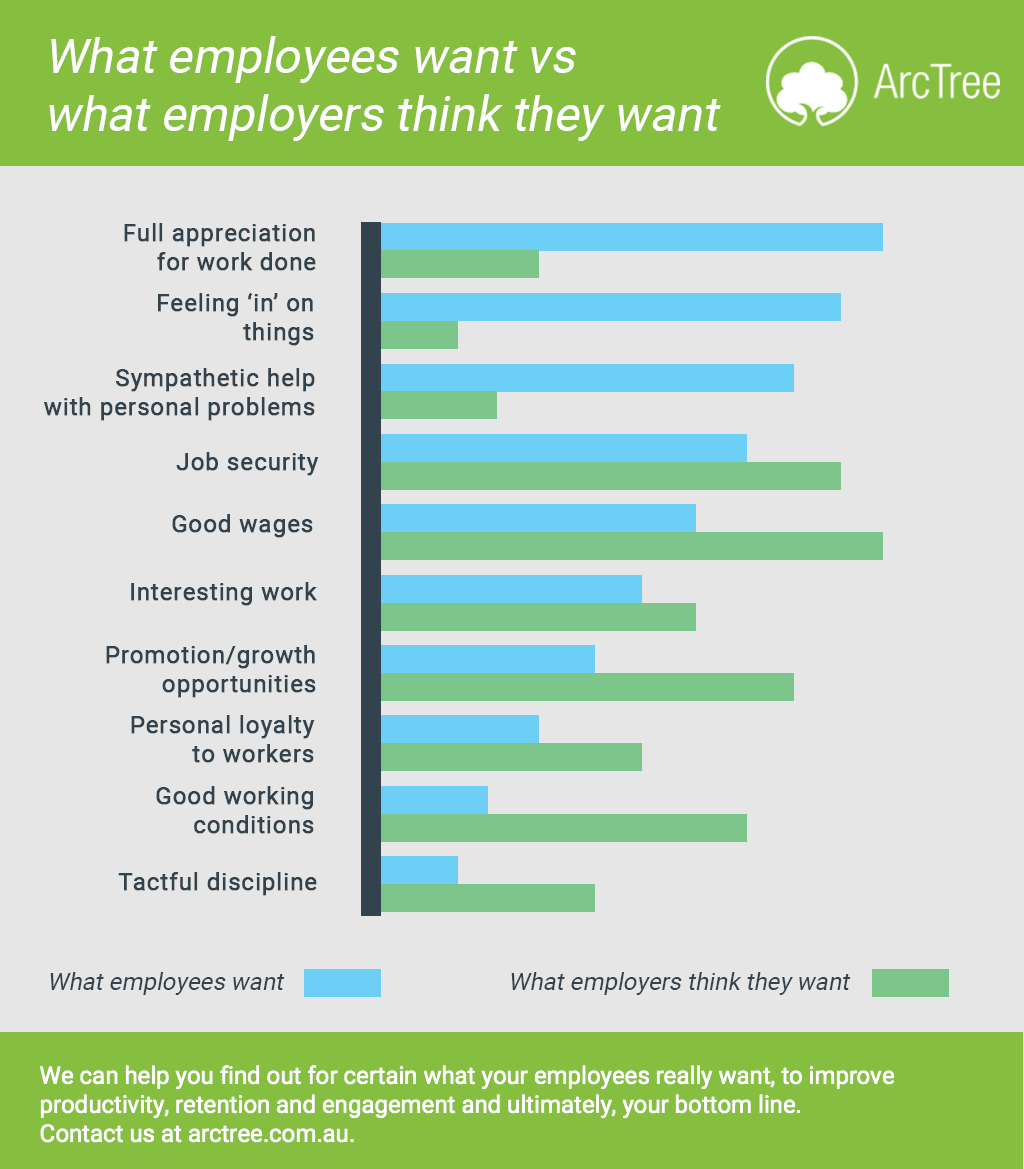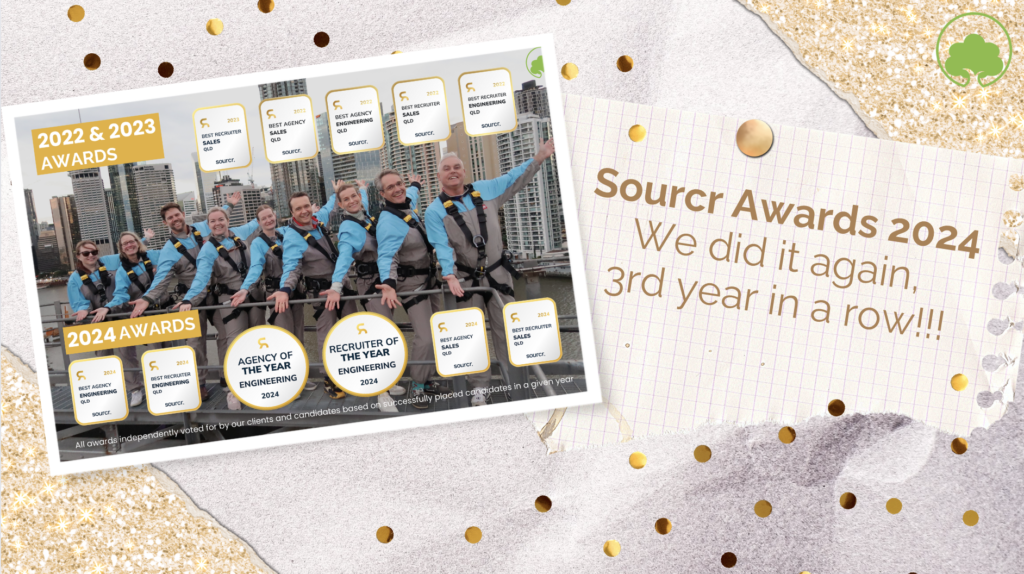If you studied Economics in High School or University, you’ll recall Karl Marx, who believed that capitalism was fundamentally flawed, and that the people who worked for capitalists were inherently oppressed. Working on repetitive tasks was, he believed, dehumanising – it disconnected people from the fruits of their labours and made them little more than cogs in a machine.
It was – or is – an incredibly depressing and bleak outlook on the employer-employee relationship. But one thing it does highlight is the basic difference in motivation between employers and employees.
Numerous studies over the years have focused on the differences between these two sides or groups, and in particular, the differences between what each of them believe the other wants. In 1946, a survey was published in Foreman Facts from the Labor Relations Institute of New York, which was replicated with similar results by Ken Kovach (1980); Valerie Wilson, Achievers International (1988); Bob Nelson, Blanchard Training & Development (1991); and Sheryl & Don Grimme, GHR Training Solutions (1997-2001). This is what they found employees wanted, compared to what employers believed they wanted.
This is what they found:

As you can see, there are some large discrepancies between what both sides believe are most important. In particular, the top 3 employee wants were also ranked in the lowest 3 by employers.
In a situation like this, we have – as mentioned in Cool Hand Luke – a failure to communicate. Employees are keenly hoping for appreciation, involvement, and empathy or understanding, while employers are thinking that paying well, providing job security and opportunities for advancement will keep their employees happy and engaged.
Things have changed since Marx’s time, of course, and employers are aware of the benefits of happy, engaged employees and will generally do their best to bring those states about.
However, the danger is that what we think will fix our engagement, retention or performance problems may not address what your employees want, and may not actually be an effective fix at all.
There is a simple way to understand what your employees want: you can just ask them. And, because employees are often more candid and honest when they’re assured of anonymity, it’s often best to engage a third party to do so.
We can help with targeted surveys based on best practice indicators of engagement, performance and productivity, so you can learn what levers will be most effective in optimising your workplace.
Feel free to give us a call on 07 3062 0974 for a conversation on how best we can help.











